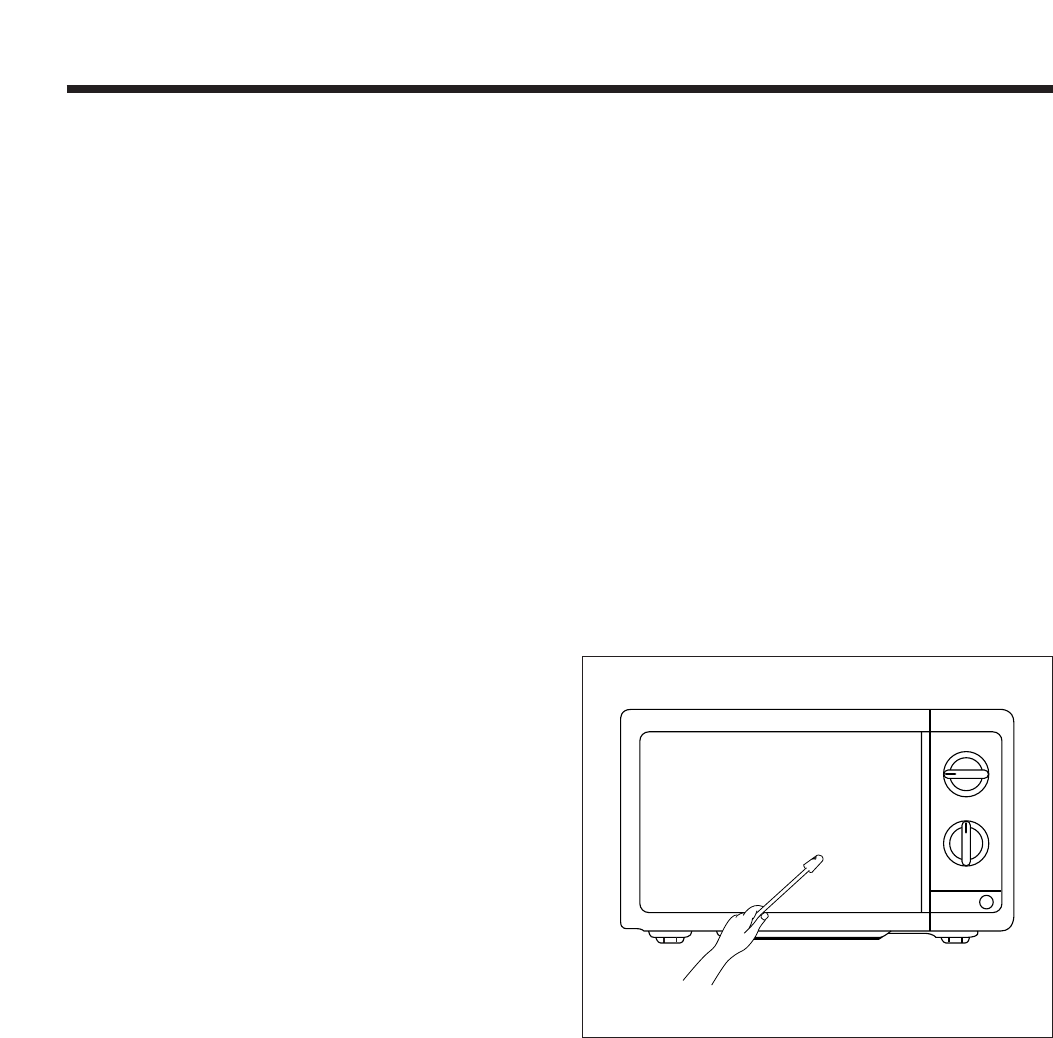
WARNING
• Make sure to check the microwave leakage before and after repair of adjustment.
• Always, start measuring of an unknown field to assure safety for operating personnel from microwave energy.
• Do not place your hands into any suspected microwave radiation field unless the safe density level is known.
• Care should be taken not to place the eyes in direct line with the source of microwave energy.
• Slowly approach the unit under test until the radiometer reads an appreciable microwave leakage from the unit under the
test.
PROCEDURE
A) Prepare Microwave Energy Survey Meter, 600cc glass beaker, glass thermometer 100˚C or 212˚F.
B) Pour 275cc¡ 15cc of tap water initially at 20¡ 5˚C(68¡ 9˚F) in the 600cc beaker with an inside diameter of approx.
9.5cm (3.5 in).
C) Place it at the center of the tray and set it in a cavity.
D) Close the door and operate the oven.
E) Measure the leakage by using microwave energy survery meter with dual ranges, set to 2450 MHz.
ƒ¡ Measured radiation leakage must not exceed the values prescribed below.
• Leakage for a fully assembled oven with door normally closed must be less than 4mW/cm
2
.
ƒ¡When measuring the leakage, always use the 2 in (5cm) space cone with probe. Hold the probe perpendicular to the
cabinet and door. Place the space cone of the probe on the door, cabinet, door seam, door viewing screen, the
exhaust air vents and the suction air vents.
ƒ¡Measuring should be in a counter-clockwise direc-
tion at a rate of 1 inch/sec. If the leakage of the
cabinet door seam is unknow, move the probe more
slowly.
ƒ¡When measuring near a corner of the door, keep the probe perpendicular to the areas making sure the probe end at
the base of the cone does not get closer than 2 inches from any metal.
If it does, erroneous reading may result.
9
MICROWAVE RADIATION TEST


















